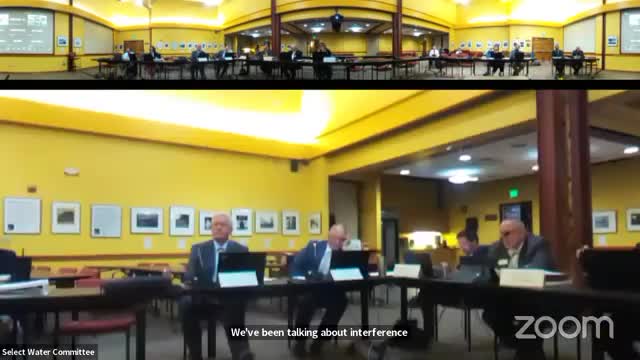Water Rights Debate Intensifies Over Colorado River Basin
August 09, 2024 | Select Water Committee, Select Committees & Task Force, Committees, Legislative, Wyoming
This article was created by AI summarizing key points discussed. AI makes mistakes, so for full details and context, please refer to the video of the full meeting. Please report any errors so we can fix them. Report an error »

In a recent government meeting, officials discussed the complexities surrounding groundwater management in the Colorado River basin, particularly concerning coal bed methane (CBM) extraction in Carbon County. A key point of contention is whether the groundwater in question is classified as tributary or non-tributary, which has significant implications for water rights and usage under existing interstate compacts.
Participants highlighted the ambiguity in the legal framework, noting that the 1922 Colorado River Compact does not explicitly address groundwater. This lack of clarity has led to confusion and uncertainty regarding the regulation of groundwater, with some states, like Wyoming, having different criteria for determining connectivity to surface water compared to others, such as Colorado.
The discussion underscored the need for comprehensive geological and hydrological studies to clarify these issues. Officials acknowledged that while historical conflicts have prompted specific funding for studies in certain areas, many regions remain under-explored due to a perceived lack of necessity.
Furthermore, the meeting revealed that any resolution to the groundwater classification issue would require consensus among the states involved in the compact. Without mutual agreement, the potential for disputes over water rights remains high, particularly as states like Colorado may divert water without compensating Wyoming if it is not recognized as protected.
The meeting concluded with a call for further investigation and collaboration among states to establish clear definitions and agreements regarding groundwater management, which is crucial for balancing industrial needs and environmental sustainability in the region.
Participants highlighted the ambiguity in the legal framework, noting that the 1922 Colorado River Compact does not explicitly address groundwater. This lack of clarity has led to confusion and uncertainty regarding the regulation of groundwater, with some states, like Wyoming, having different criteria for determining connectivity to surface water compared to others, such as Colorado.
The discussion underscored the need for comprehensive geological and hydrological studies to clarify these issues. Officials acknowledged that while historical conflicts have prompted specific funding for studies in certain areas, many regions remain under-explored due to a perceived lack of necessity.
Furthermore, the meeting revealed that any resolution to the groundwater classification issue would require consensus among the states involved in the compact. Without mutual agreement, the potential for disputes over water rights remains high, particularly as states like Colorado may divert water without compensating Wyoming if it is not recognized as protected.
The meeting concluded with a call for further investigation and collaboration among states to establish clear definitions and agreements regarding groundwater management, which is crucial for balancing industrial needs and environmental sustainability in the region.
View full meeting
This article is based on a recent meeting—watch the full video and explore the complete transcript for deeper insights into the discussion.
View full meeting